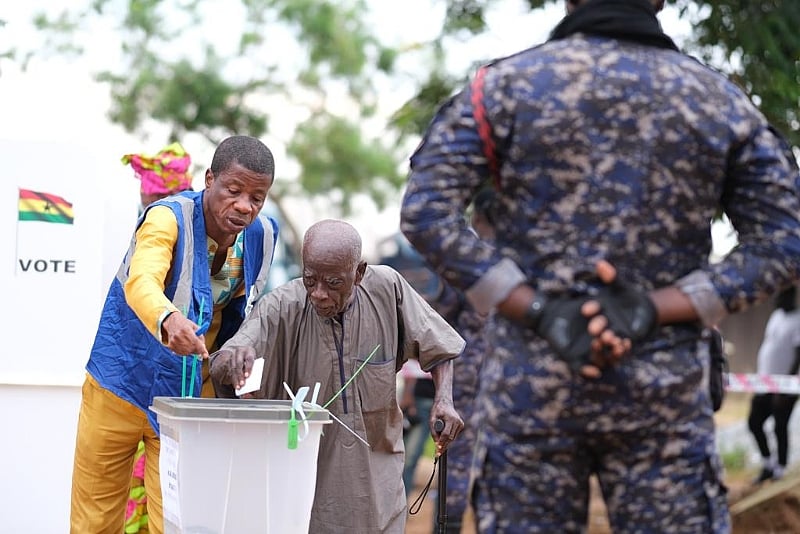Ghana, a nation often lauded for its democratic strides, finds itself grappling with a recurring shadow over its by-elections: the specter of violence. Two prominent civil society organizations, Community Focus Foundation Ghana (CFF-Ghana) and the Democratic Credentials Network (DCN), have issued a stark warning, highlighting the nation’s history of turbulent by-elections marred by intimidation, physical assaults, and vigilantism. As the Akwatia by-election looms, these organizations are calling for a collective commitment to tolerance, vigilance, and adherence to democratic principles to ensure a peaceful and credible electoral process. Their concerns underscore the fragility of democratic institutions and the urgent need for proactive measures to safeguard the integrity of Ghana’s electoral system.
The CSOs’ statement paints a disconcerting picture of Ghana’s by-election landscape. They argue that these elections, often seen as barometers of public sentiment between general elections, have become breeding grounds for political violence, undermining the very essence of democratic values. Instead of being opportunities for citizens to exercise their franchise freely and peacefully, by-elections have become synonymous with tension, fear, and the potential for unrest. This pattern of violence, they argue, tarnishes Ghana’s image as a beacon of democracy in Africa and necessitates a concerted effort to address the underlying issues that fuel such conflicts. The organizations emphasize the need for a paradigm shift, urging all stakeholders to prioritize peace and respect for the democratic process above partisan interests.
Central to the CSOs’ recommendations is the call for mutual respect and tolerance among citizens, regardless of their political affiliations. They emphasize the importance of accepting diverse viewpoints and engaging in constructive dialogue, even in the face of disagreement. This plea for civility underscores the fundamental principle that democracy thrives on the freedom of expression and the peaceful coexistence of differing perspectives. The organizations also urge strict adherence to the established electoral guidelines by all stakeholders, including political parties, the Electoral Commission, security agencies, and the media. This adherence to the rules of engagement, they argue, is crucial for maintaining order, transparency, and accountability throughout the electoral process.
Furthermore, the CSOs call for heightened vigilance to prevent the infiltration of vigilante groups, often mobilized by political parties to intimidate opponents and disrupt the electoral process. They emphasize the need for proactive measures to identify and neutralize these groups, ensuring that the election remains free from coercion and violence. Another key recommendation focuses on the professionalism and accountability of security personnel deployed during the by-election. The CSOs advocate for proper identification of security officers through name tags, aligning with international best practices and promoting transparency in their actions. This measure, they believe, will deter misconduct and ensure that security forces act responsibly in maintaining order.
Addressing the root causes of electoral violence, the CSOs encourage dialogue and peaceful resolution of grievances. They urge aggrieved parties to refrain from resorting to violence and instead seek redress through established legal and institutional mechanisms. This emphasis on peaceful conflict resolution underscores the importance of upholding the rule of law and respecting the democratic process. The organizations believe that by fostering a culture of dialogue and peaceful engagement, Ghana can break the cycle of violence that has plagued its by-elections.
The CSOs’ statement expresses deep concern over the inflammatory rhetoric employed by some political actors during the pre-election period. They highlight the prevalence of “war songs” and provocative statements on both social and mainstream media, describing such behavior as an unacceptable infringement on democratic values. This incitement to violence, they argue, creates a hostile environment and increases the risk of actual violence during the election. They implore political leaders to exercise restraint and responsibility in their pronouncements, choosing words that promote peace and unity rather than division and animosity. The CSOs conclude their statement with a stark warning that Ghana stands at a critical juncture, facing a heightened risk of violence during the Akwatia by-election. They issue a final plea to all stakeholders to prioritize peace above partisan interests and uphold the principles of democracy, ensuring a free, fair, and peaceful electoral process.














